Joe Biden is the "Drill, Baby, Drill" President
Five figures that show record oil and gas production and exports
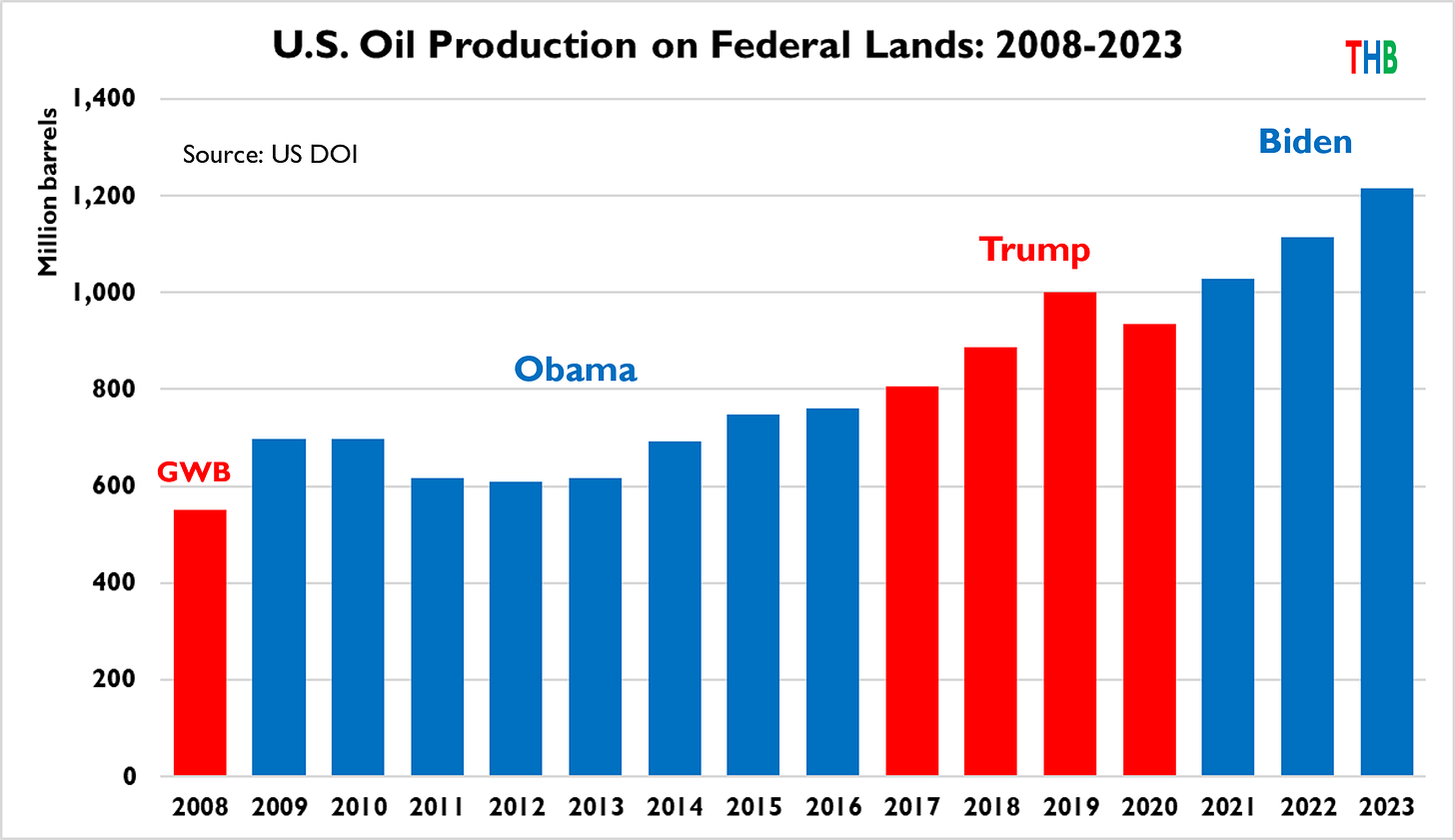
I would guess that we are going to hear the phrase “drill, baby, drill” a lot in the next three months. Here at THB, one goal is to ensure that whatever our politics or views on policy, that we work hard to share a common understanding (or at least a shared understanding of disagreement) of what available evidence says and does not say.
Many people I talk to are surprised to learn that U.S. oil and natural gas production and exports are in record territory under the term of the Biden administration. This post shares relevant data.
It is of course fair to ask how much influence a particular administration might have over oil and gas, but whatever that influence, it is incorrect to assert that the Biden administration has seen any reduction in production or exports.
The figure at the top of this post shows U.S. oil production on federal lands from 2008 to 2023, by president. The Biden administration has seen production grow to record levels, continuing a trend that began in 2013, during the Obama administration, interrupted only by the pandemic in 2020.
Production on federal lands is of course just a small part of overall U.S. oil production. The figure below shows the overall trend, which has also reached record levels since the pandemic.
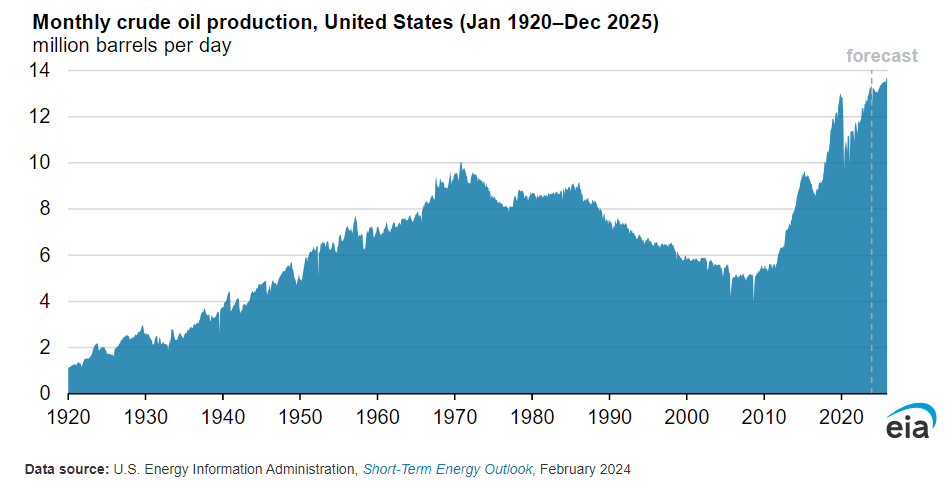
The figure below shows that U.S. crude oil exports — Hold on there. Take a second to realize that we are talking about U.S. crude oil exports — have also increased steadily since 2021 and are also in record territory.
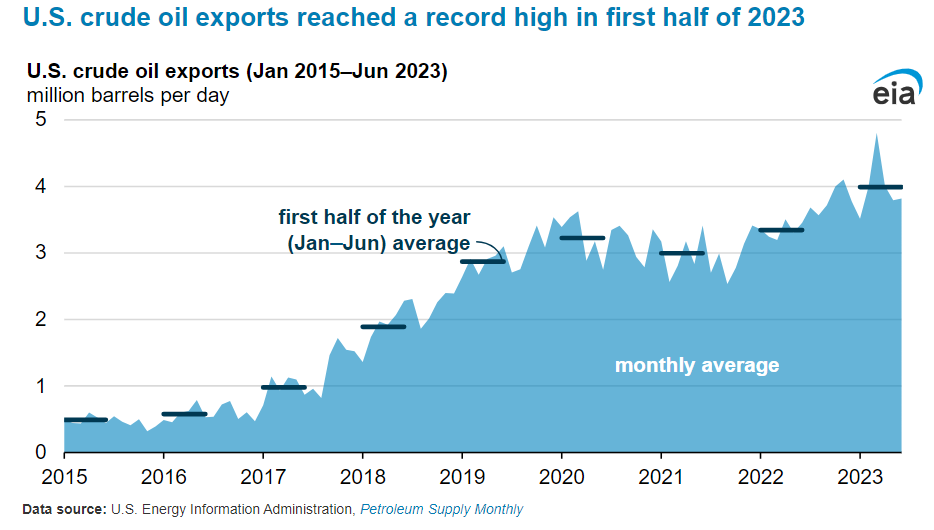
Similarly, the figure below shows that overall U.S. natural gas production (by formation) 2007 to 2023, is also in record territory for 2022 and 2023.
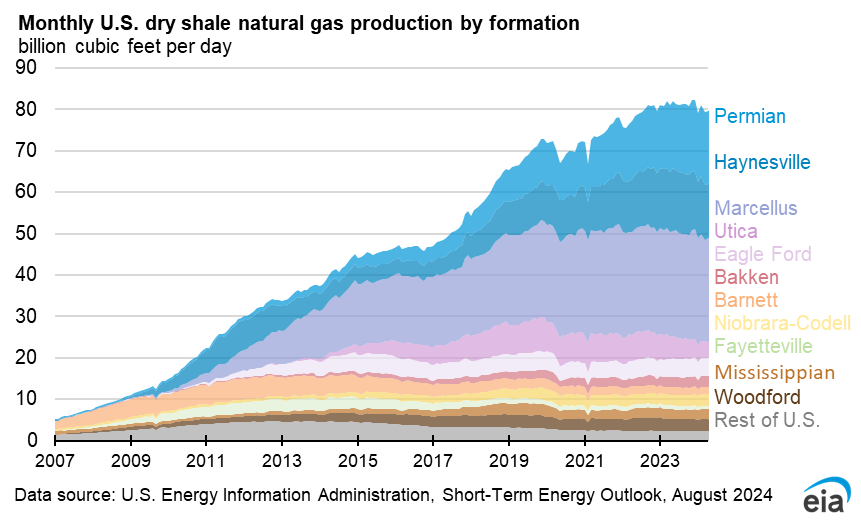
Finally, the figure below shows U.S. LNG exports from 2016 to 2024. Up, up, and up.
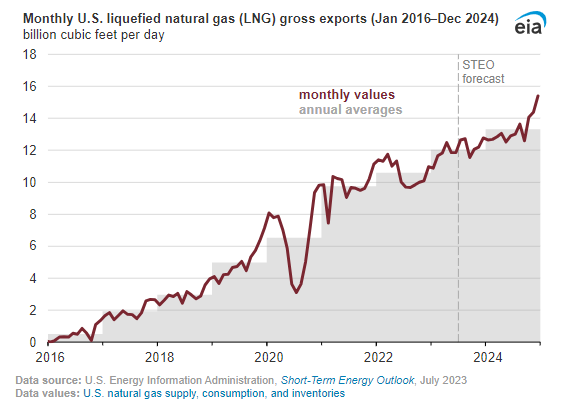
Looking at the time series above, it might be fair to conclude that the “drill, baby, drill” president is whichever one happens to be in office, regardless their party or policies. The biggest difference might be simply how they talk about energy.
The U.S. is currently the world’s energy superpower. The more important questions are not about who wants to “drill, baby, drill,” but rather, what sorts of U.S. policies make sense given where we are today.
Thanks for reading! I welcome your comments, discussion, questions, different points of view, pointers, and conversation. THB is reader supported — that means that the work here is made possible by the readers who value the content that they encounter here. So please consider a subscription or an upgrade to an existing subscription, much appreciated!




I think the problem with the Biden crew, same as with the Trudeau clown show is the complete lack of consistency of words vs action, almost to a level of schizophrenia.
How is business suppose to work in an orderly fashion when the government of the day speaks in apocalyptic terms and issues threats both veiled and open constantly?
Great that your drilling but uncertainty is the biggest killer of of business that there is. And it leads to all sorts of bad decision and misallocation of resources to dead ends, like subsidies for renewables and full plug in EV's.
I'll take a government that doesn't sound insane 24/7, and there is no possibility that your democrats will ever provide that again Roger.
Not without a major house cleaning.
Maybe they just need an honest broker to explain reality to them.
I spent my career in the Oil and Gas industry and can tell you that focusing on production only doesn't tell the whole story.
An important thing to consider is the allocation of capital, be it for short lead time projects (often expanding or improving existing producing assets, AKA "Brownfields") or longer lead time projects (often in new assets, AKA "Greenfields"). Greenfield projects can be somewhat speculative, but also can greatly expand production. Again, it can take years for the new production to hit the market.
If the oil and gas industry perceives a less than favorable political environment capital expenditures will face increased scrutiny, which may impact future production.